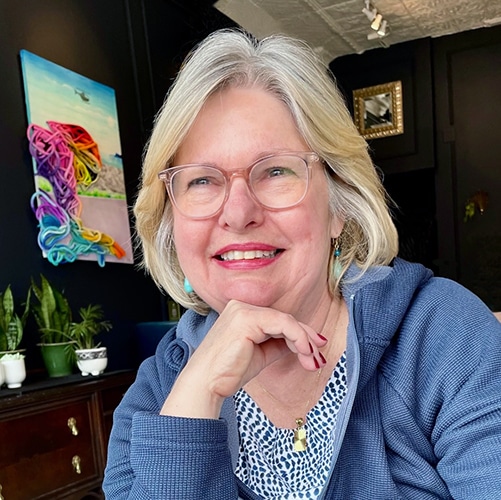Last week at the Clio Cloud Conference in Chicago, the law practice management software company gathered 200-plus faithful users for two days of programming, capped by an exuberant launch of Clio’s first-ever iPhone app. (iPhone JD has reviewed it here, and, yes, iPad and Android versions are coming.) “Clio University” sessions dug into features, and hands-on help was front and center, with a “Genius Bar” and the app’s design team on hand.
But sessions devoted to “Practicing in the Cloud” elevated ClioCon beyond the typical user conference, as thought leaders hammered home issues surrounding the future of law practice and new opportunities for solo and small firm lawyers.
Head in the Clouds or Planted in the Sand?
As Mitch Kowalski reported, “When the opening begins with the Clio team in the hall chanting like a football team about to take the field … you know this ain’t gonna be your grandpappy’s type of law conference.” Here are just a few of the many highlights from the Clio Cloud Conference.
Did you know you had superpowers? In his keynote, “Taking Your Practice to Cloud 9,” Clio CEO Jack Newton said the cloud is one of the most important things to happen to small law firms and businesses “in the history of technology.” As he put it, “That’s not hyperbole, it’s real. In the past, small firms and businesses were overlooked as every other industry was revolutionized by IT,” but the cloud is changing the game: “Last year alone venture capitalists invested $2.5 billion in cloud technology, with the vast majority targeted at small business.”
Newton quoted from Richard Susskind‘s book, Tomorrow’s Lawyers: “When thinking about IT and the Internet the challenge is not just to automate current working practices that are not efficient. The challenge is to innovate, to practice law in ways that we could not have done in the past.” The cloud, said Newton, is what gives you the “superpowers” to do just that.
And these superpowers not only help lawyers innovate for their clients, they may even improve quality of life. A recent Clio user survey reports users saving almost two hours a day, or 8.5 hours each week — an entire working day or a good night’s sleep!
With super powers come super responsibilities. LawSites’ Robert Ambrogi tackled “Practical and Ethical Uses of the Cloud,” reviewing the ABA Model Rules that apply, and the opinions issued to date by 17 states (including a pretty cool map). The recent revision to the comments of ABA Model Rule 1.1, stating that lawyers should “understand the benefits and risks of technology” was a constant refrain throughout ClioCon. Ambrogi’s take? You just have to be responsible, not paranoid. “Nobody is saying you have to be an IT expert, but you have to be aware of what’s going on and be somewhat technically competent.” You can find Ambrogi’s helpful 10 questions lawyers should be asking cloud providers here in his SlideShare presentation.
Change is afoot for tomorrow’s lawyers. Speaking of the technically competent, if you work with new lawyers you know that facility with iThings and video games doesn’t necessarily translate to legal technology. But Doug Edmonds, Assistant Dean for IT at the UNC School of Law, is among a group of legal educators who’d like to change that, advocating that technology competency should be part of every new lawyer’s training — particularly clinical education in law school. In his keynote, “Preparing Tomorrow’s Lawyers,” Edmunds said that despite the doomsday outlook on the state of legal education, he’s noticed a subtle shift in mood since the economic downturn — acceptance that legal education must evolve, and signs that “change is afoot.” He pointed to the recent September 20 release of the Draft Report and Recommendations of the ABA Task Force on the Future of Education, and a host of developments at law schools that do more than pay mere lip-service to change. (We’ll be publishing examples in a future series.)
“Change is a dragon. You can ignore it, which is futile. You can fight it, in which case you’ll lose. Or you can ride it.” Maybe it was the “Star Trek” moments or that terrific dragon proverb (or even the British accent), but the most memorable keynote was from Andy Daws, of “new model” U.K. law firm Riverview Law. (The firm receives an InnovAction Award this weekend at the College of Law Practice Management’s Futures Conference.) Daws believes the legal profession is facing a James T. Kirk “Kobayashi Maru” moment — and that there’s no winning for lawyers without change. He took on a daunting topic (for the American bar at least) — “Liberalization of Legal Services in the U.K. and Beyond” — and managed to deliver a lucid and motivating argument for why North American lawyers need to get out in front of the change rather than dig in their heels.
After illuminating the European global march toward liberalization, Daws described the U.S. as swimming against the tide in its efforts to stave off similar reforms. There’s opportunity in the liberalization, he said, laying out example after example of new model law firms — from the Co-operative Legal Services to Quality Solicitors to Stobart Barristers, a transport company now offering fixed price legal services. While it may be more difficult for American BigLaw to innovate, he said small firms are well positioned: “The capacity for change is there. Now it is merely about the choices you make.”
So if you accept that change is coming, what should you do? Well, if you’re Daws, you don’t wait for precedent. You think like Kirk (“I don’t believe in a no-win scenario”) and redefine the moment. You can also read this paper Daws recommends, comparing lawyers to travel agents: “Even in a Digital, Data-Driven World, We Still Need Travel Agents … and Lawyers.”
Redefining your service. Does your practice have brand evangelists? “Most law firms think customer service is a cost center, but you should be looking at it as a profit center,” said Jack Newton. At his motivating session on “Differentiating Your Firm with Customer Service,” he explained why investing in client service — and shifting your attitude about it — can have a big impact on your bottom line. Pointing to brands that have inspired Clio — Apple Stores, Zappos, Nordstrom’s and Southwest — Newton said these companies strive to turn every customer into a brand evangelist. And there’s no reason why law firms shouldn’t do the same. After all, there’s nothing better than word-of-mouth referrals to help build your law practice.
Besides, of all the factors affecting the viability of your law practice, how you treat your clients is one thing you can actually control.
Outstanding presentations at ClioCon were also delivered by Fastcase CEO Ed Walters, as well as Richard Granat and Chad Burton on virtual law practice. Plus Steve Matthews, Gyi Tsakalakis and Fred Faulkner (all Attorney at Work contributors) provided excellent advice on marketing a law practice, as did Clio’s Joshua Lenon and Gwynne Monahan, who spoke on social media. So be sure to check Clio’s Facebook page and blog for videos from the conference.
Joan Feldman is Partner/Editorial at Attorney at Work, former Managing Editor of the ABA’s Law Practice magazine and a Fellow of the College of Law Practice Management. Follow her @JoanHFeldman and follow Attorney at Work @attnyatwork.
Note: Attorney at Work is a media sponsor of Clio Cloud Conference.
Illustration ©iStockPhoto.com.

















